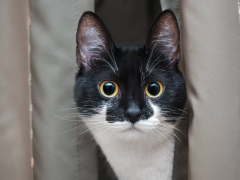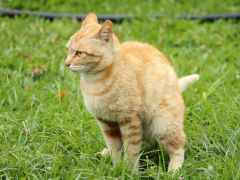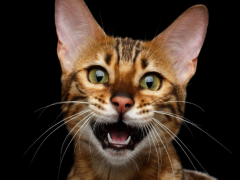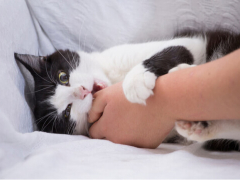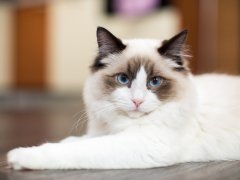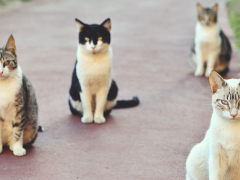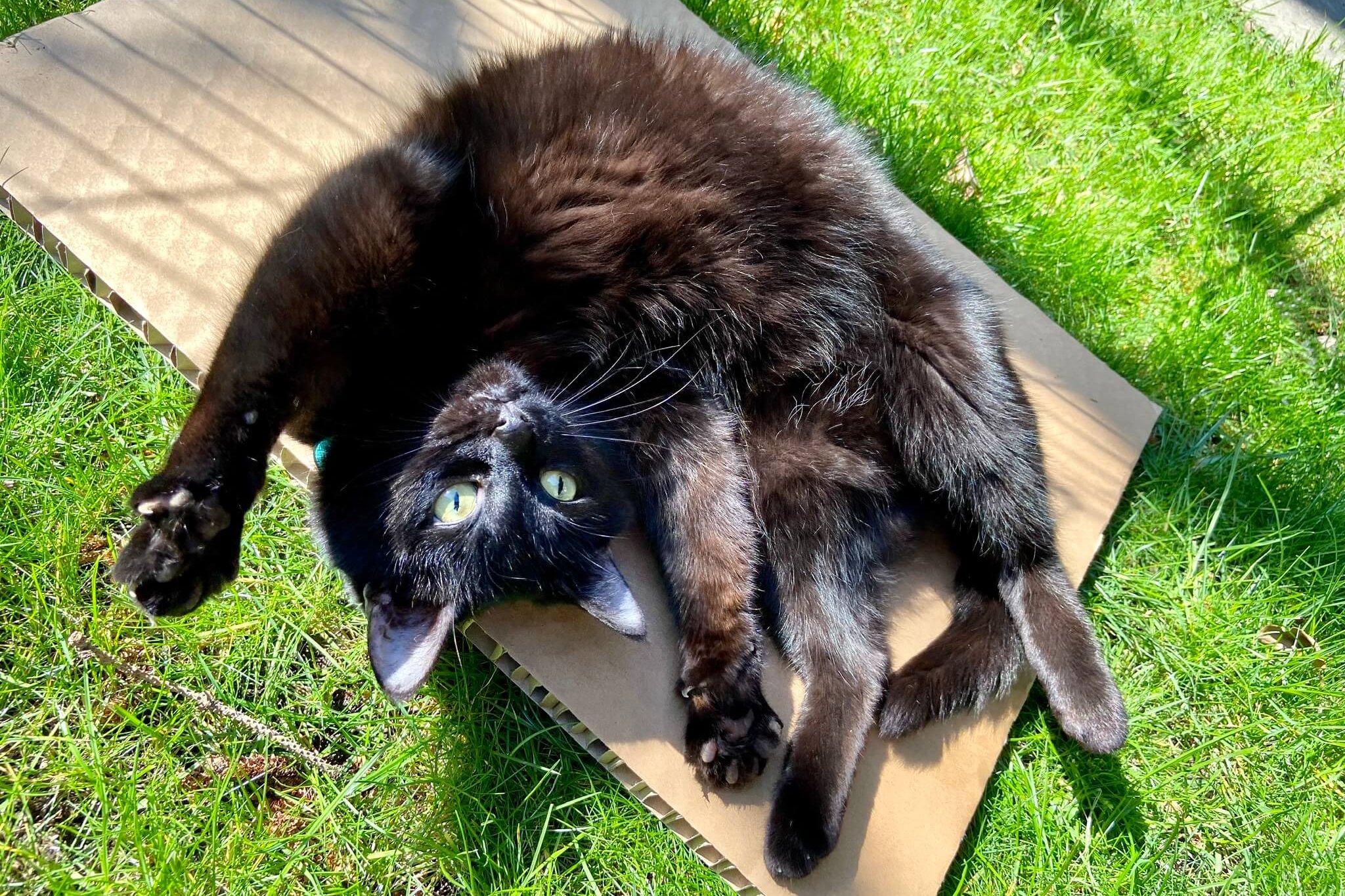
Taylor Le / Cats.com
Not a cat person? Im-paws-ible! Cats are extraordinary beings with unique personalities, needs, and preferences. Identifying your cat’s temperament can help you provide them with a superior quality of life.
Several studies have shown that cats’ personalities vary just like humans’. Some are confident, bold, and sociable. Others are timid, reserved, or fearful. Similarly, each cat behaves differently when confronted with a particular situation or event.
Let’s assess what shapes a cat’s temperament:
Feline Genetics and Environment
Your cat’s personality is influenced by their genetics and the environment they’re nurtured in. Genetics can impact how comfortable your cat is with people and other animals, how active and curious they are, and how they like to play.
The Oxytocin Receptor Gene (OXTR), which is related to a human-dog attachment, may also foretell a cat’s sociability or roughness. Domestic cats are generally approachable, less fearful, and more exploratory, while feral cats are more vigilant to danger and potential threats from people.
Kitten Socialization and Experiences
For a cat to live comfortably in your home, it’s preferable for them to experience positive interactions with people when they are a kitten. Kittens are most responsive to learning about their surroundings and their experiences can shape their response to humans for a lifetime. Likewise, kittens who have pleasant encounters with other pets are likely to get along with them more easily throughout adolescence and adulthood.
Kittens also benefit from positive exposure to a broad range of novel situations. Lack of exposure to certain sights, sounds, smells, and new people may make cats fearful of the unfamiliar. They may avoid those unfamiliar things throughout their lives by hiding away or being defensive.
Cat Personality Assessments
Cat personality assessments consider the cat’s behaviors and emotional expressions, which are constant across time and in various contexts. Temperament evaluations are usually conducted and measured across short vs. long-term observations, across distinct tests, in addition to behavioral plus personality questionnaires, and by monitoring cats during their habitual life situations to produce personality types.
So What Personality Type Does Your Cat Have?
Recent research from 200 cat parents conducted by Dr. Lauren Finka suggests cats will have one of five personality types. These five types are influenced by each of the components we discussed—genetics, environment, and developmental upbringing.
Let’s examine what personality type your cat has according to Dr. Finka’s study:
5 Feline Personality Spectrum
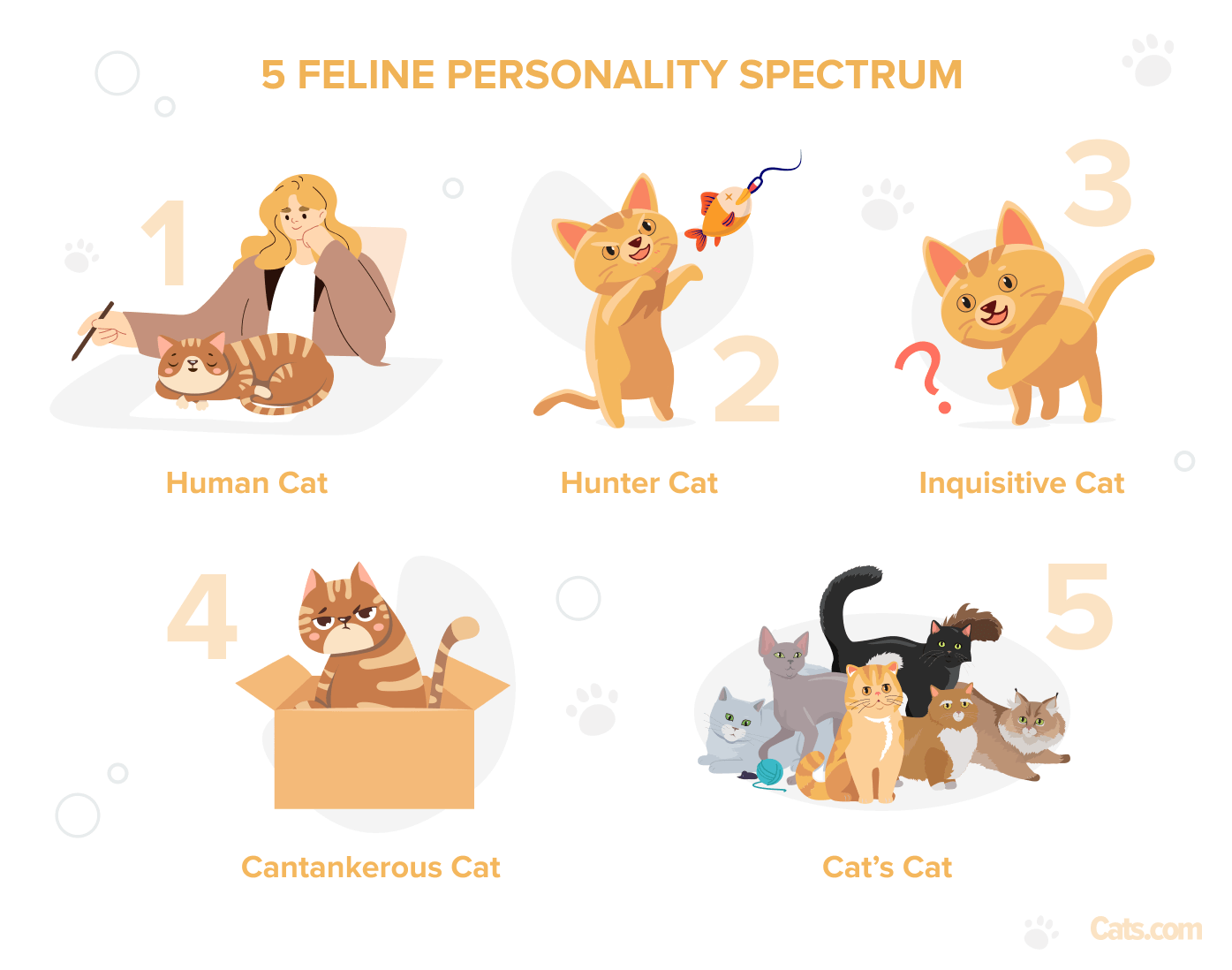
1. Human Cat
The Human Cat is sociable and enjoys affection from their pet parent. They love sharing your space with you and are always ready to cuddle or just be near you. They probably want to sleep in your bed at night and right on your keyboard during the day. This cat is incredibly friendly, calm, and responsive toward people. They display affection through kneading and will get lonely without daily social attention.
2. Inquisitive Cat
The Inquisitive Cat is eager to investigate new scents, sights, and sounds around their environment. This instinct is formed by early exposure to new stimuli during the socialization and habituation period. This cat will thrive in an energetic environment by meeting new people and being exposed to novel events and settings on regular basis. Keep them engaged with puzzle toys, foraging boxes, and cat castles.
3. Hunter Cat
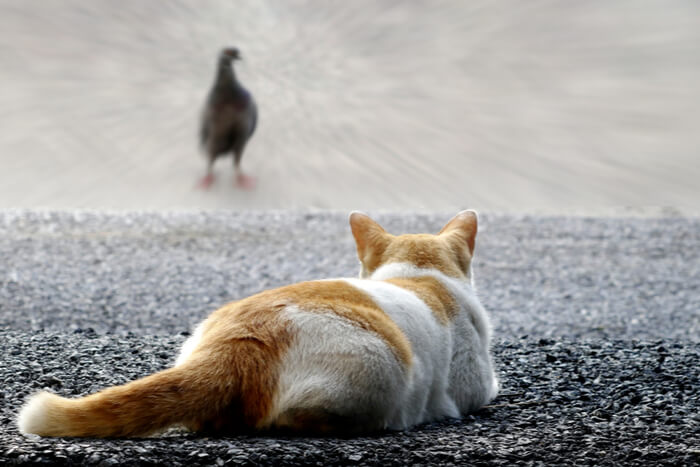
A cat may press their tail to the ground as they stalk their prey. Shutterstock.com
The Hunter Cat expresses the most predatory hunting behavior by stalking and capturing prey. Indoor-only Hunter Cats will especially enjoy “hunting” inanimate objects like mice and feather toys. They might even present you with their latest kill as a gift! Embrace this predacious behavior to prevent boredom and dissatisfaction.
4. Cantankerous Cat
The Cantankerous Cat’s love language is certainly not physical touch. They aren’t mean, they just want you to respect their space—and that’s fair! They are vulnerable to touch, hypervigilant about their environment, and easily frustrated. Be patient, keep them comfortable, and love them on their terms. They may even love to be near you—just not picked up or petted much. Provide plenty of toys for independent play and respect their boundaries.
5. Cats’ Cat
Despite being a solitary species, the Cat’s Cat enjoys sharing their home with other cats. These feline friends could be related or non-related and may even become a bonded pair. Cats like this are likely to have been socialized with other cats when they were young. They will play, groom, and cuddle their feline roommates. They might not even mind being left home alone as much because they have a valuable friend.
Each cat has a unique temperament with a genetic link. When you choose a kitten or adult cat to live closely with you, think about their individuality to make sure they’re well suited to your family and lifestyle. This will help improve the human-cat bond, decrease a cat’s frustration, and enhance their well-being.
-
Finka, L., Ward, J., Farnworth, M. J., & Mills, D. S. (2019). Owner personality and the wellbeing of their cats share parallels with the parent-child relationship. PLOS ONE, 14(2), e0211862.
-
Care, I. C. (2018, October 04). Choosing an Adult Cat. International Cat Care.
-
Isadora de Castro Travnik, D. d. (2020, August 24). Temperament in Domestic Cats: A Review of Proximate Mechanisms, Methods of Assessment, Its Effects on Human—Cat Relationships, and One Welfare. MDPI, 10, 1516.
-
Milla Salonen, K. V.-T. (2019, May 28). Breed differences of heritable behaviour traits in cats. Scientific Reports, 7949, 2-7. Retrieved August 23, 2021.
-
Salla Mikkola, M. S. (2021, July 01). Reliability and Validity of Seven Feline Behavior and Personality Traits. MDPI, 1-17. Retrieved August 22, 2021.
